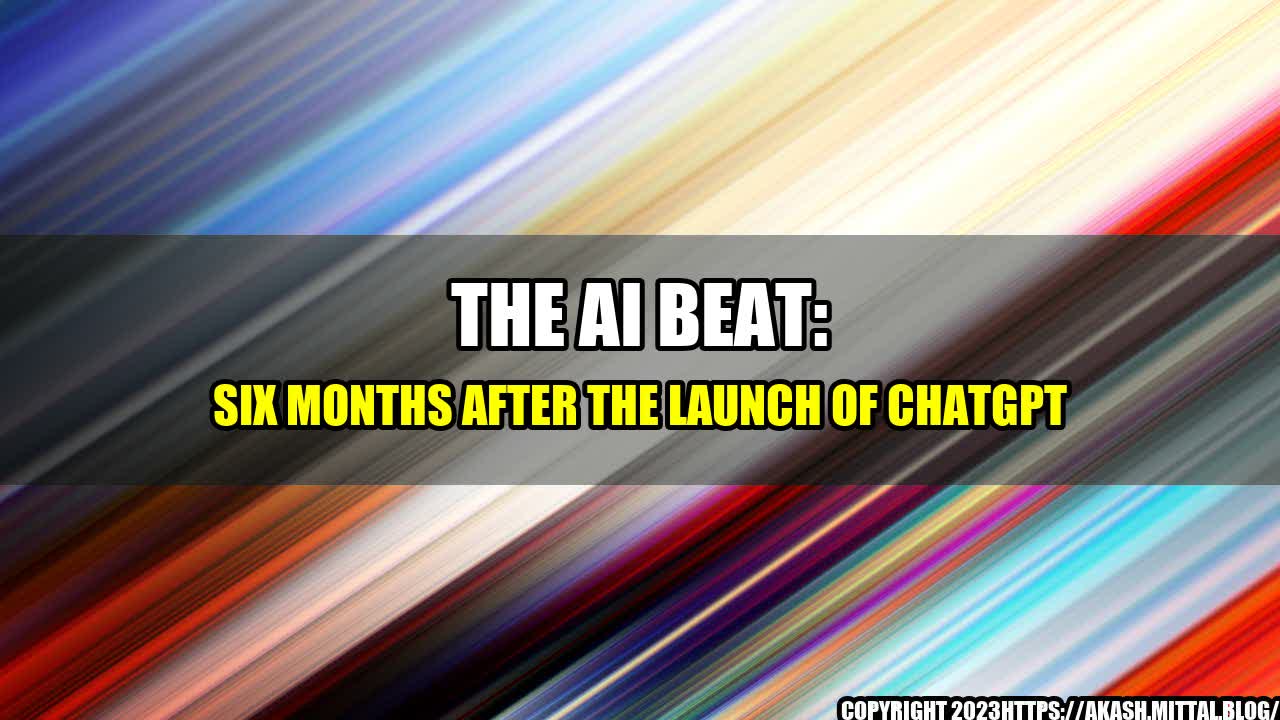Have you ever talked to an AI-enabled communication program like ChatGPT? Maybe you did not notice that you were chatting with an AI, but if you have been using any online platform for customer service, you might have encountered a chatbot that offers automated help. ChatGPT is one of the latest AI chat programs that has brought a new level of sophistication in terms of natural language processing and conversation flow. Launched six months ago, ChatGPT has been making waves in the industry for its ability to mimic human-like communication in a way that is almost seamless. However, with the rise of AI on the internet, the debate about AI ethics and regulations has become more critical than ever.
The launch of ChatGPT has sparked a lot of interest among online businesses that are seeking innovative ways to reach out to customers. Here are a few quantifiable examples of how ChatGPT has had an impact on the industry:
- Increased Efficiency: According to a survey by Gartner, 70% of customer service teams will use some form of AI chatbot to manage their interactions with customers by 2022. With AI chatbots, businesses can automate repetitive tasks, provide instant responses to queries, and scale up operations without hiring additional staff.
- Improved Customer Experience: A chatbot like ChatGPT can provide a personalized experience to customers by analyzing their history of interactions, preferences, and behavior on the website. This can boost customer satisfaction and loyalty as the chatbot can remember previous conversations and even recommend related products or services.
- New Opportunities: AI chatbots are opening up new opportunities for businesses to interact with customers on messaging platforms like Facebook Messenger, WhatsApp, or WeChat. By integrating AI chatbots into these platforms, businesses can increase their reach and engagement with customers on a global scale.
Analyzing the Pros and Cons of AI Chats
While AI chat programs like ChatGPT have numerous benefits, they also come with their own set of challenges. Here are some of the pros and cons to keep in mind:
Pros
- Faster and More Accurate Responses: AI chatbots can process and analyze large amounts of data in real-time and provide accurate responses within seconds. This can help improve customer satisfaction and reduce response time.
- 24/7 Availability: Unlike humans who need rest or sleep, AI chatbots can operate 24/7 without any interruption, providing immediate assistance to customers even outside of business hours.
- Cost-effective: Chatbots can handle multiple conversations simultaneously, reducing the need for hiring and training additional staff. This can save businesses significant amounts of money in the long run.
Cons
- Lack of Emotional Intelligence: AI chatbots lack the ability to display empathy, understanding, or emotional intelligence in a way that humans can. This can create a sense of distance or disconnection in the conversation, which can lead to a poor customer experience.
- Data Privacy Concerns: Since AI chatbots collect a vast amount of data about customers, businesses need to ensure that they have adequate measures in place to protect customer privacy. Any breach of data can have serious ramifications for both the business and the customer.
- Technical Limitations: AI chatbots are still not advanced enough to handle complex or nuanced conversations that require human intuition or creativity. They rely on pre-programmed responses that may not always be relevant or helpful in some situations.
Conclusion in Three Points
- AI chat programs like ChatGPT have become increasingly popular in the industry due to their ability to automate repetitive tasks, provide instant responses, and improve the customer experience.
- However, AI chatbots also come with their own set of challenges such as a lack of emotional intelligence, data privacy concerns, and technical limitations.
- As the use of AI on the internet continues to grow, it is imperative that businesses and regulatory bodies alike establish ethical guidelines and regulations to ensure that these programs are used in a responsible and safe manner.
and Case Studies
To illustrate the benefits and limitations of AI chat programs, let us take a look at some personal anecdotes and case studies:
Personal Anecdote:
One of the most striking features of ChatGPT that I encountered was its ability to mimic human-like conversation. I did not realize that I was chatting with an AI program until I started asking more complex questions that its pre-programmed responses could not answer. While the chatbot was helpful in providing basic information and answers to common queries, it struggled to handle more nuanced or open-ended conversations. This highlighted the fact that AI chatbots are still limited in their capabilities and rely on pre-defined responses.
Case Study:
A popular e-commerce website implemented an AI chatbot to handle customer queries and complaints. While the chatbot was effective in handling simple inquiries, it struggled to provide a personalized experience to customers and often failed to understand the context of the conversation. This led to a poor customer experience and an increase in negative reviews. To address this, the company decided to integrate some level of human oversight to ensure that complex or sensitive queries are escalated to human agents who can provide a more personalized response.

Curated by Team Akash.Mittal.Blog
Share on Twitter Share on LinkedIn